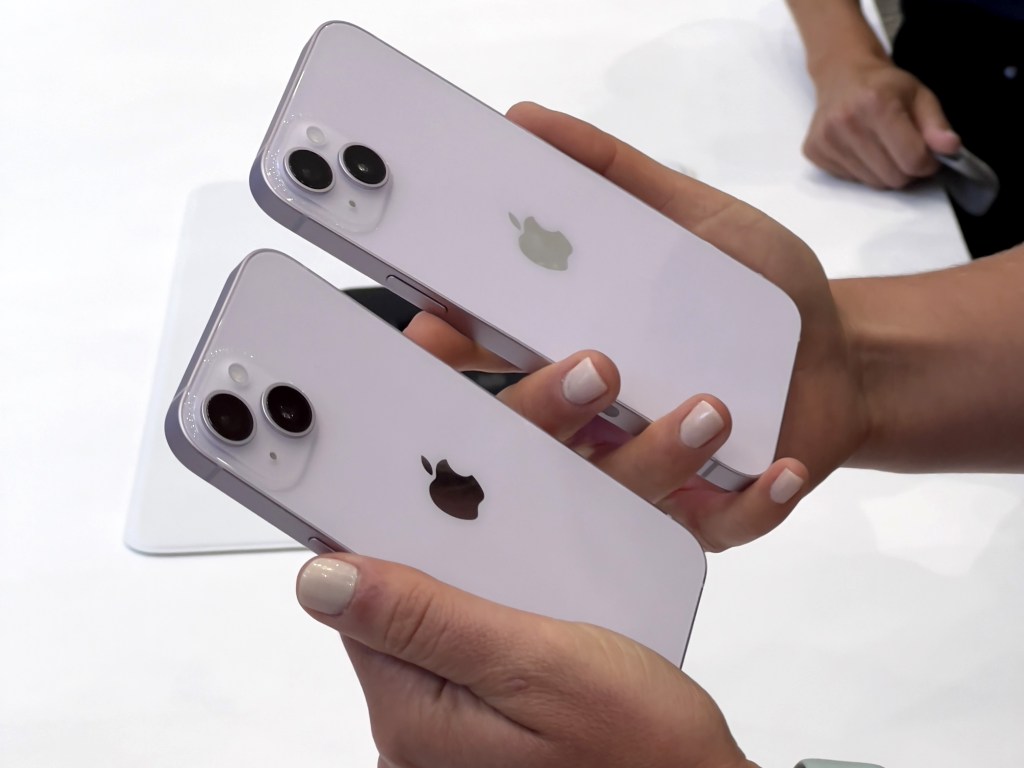Earlier today, an audience of journalists and engineers attended an Apple hardware keynote event in Brooklyn. We learned that the company is releasing a much-anticipated new Macbook Air (with a keyboard that’s the same as the other flawed ones Apple has made lately), and continuing to move confoundingly away from headphone jacks.
Little was said about the iPhone today, as Apple held a phone-specific keynote in September. But maybe it never mattered whether the latest and greatest phone, tablet, or laptop is better than the ones from last year, or even last quarter. A new report shows that we’re hanging on to our smartphones longer and longer, and we’re more hesitant than ever to buy the latest mobile device.
Videos by VICE
According to a recent study by Hyla Mobile as reported by the Wall Street Journal, a mobile-device trade-in company, the average age of an iPhone at trade-in is now 2.92 years. That’s up from 2.38 years in 2016, and 2.59 in 2017, according to the company.
Part of this, according to Biju Nair, chief executive of Hyla Mobile, is because phone plan carriers moved from a subsidized payment model for new phones, to payment plans, as smartphones got more expensive over the years. Now, if you purchase it from a big carrier like Verizon or T-Mobile as part of a plan package, your phone is basically on loan to you from the carrier, while you make smaller monthly payments until it’s paid off and you own it outright.
It can take years to pay off a new smartphone (the iPhone XS Max costs almost $1,100), and once you’ve done it, there’s not much incentive to give up that investment—especially when the newest models aren’t much different in terms of specs and performance than the one you already have.
Add to this the efforts by right-to-repair groups to raise awareness about the fact that your phone actually doesn’t need to go in the garbage every time you crack the screen, and you’ve got people keeping their phones longer.
The way we view new technology has also changed in recent years. I’ve written previously about the culture of the smartphone upgrade—and especially, the iPhone—as a status symbol. A true Apple brand stan used to be able to spot this generation’s iPhone from the last, from an arm’s length away, but as all our phones get more homogenous inside and out, the difference is less noticeable—to the person holding it and anyone else who’s looking. Who cares if your phone is three years old, if it still works fine?
Smartphone companies also have a frustrating habit of introducing features no one asked for, and often actively hate, in the name of “innovation.” Apple, especially, is guilty of this: In attempting to force a shift to wireless headphones by eliminating the standard 3.5 mm headphone jack on all its new phones, it’s continuing a two-year effort to twist its customers’ arms into buying AirPods (or requiring them to get another fucking dongle.)
These factors, combined with the looming sense that we’re destroying the planet with plastic and electronic waste and are passively complicit in inflicting various labor abuses every time we buy a new, unnecessary device, it’s no wonder people are hanging on to their phones for longer.




